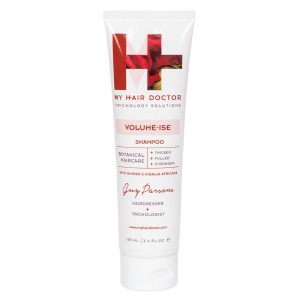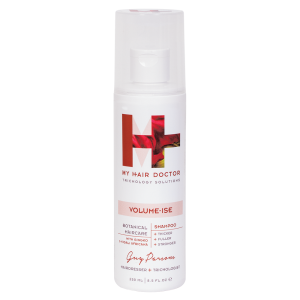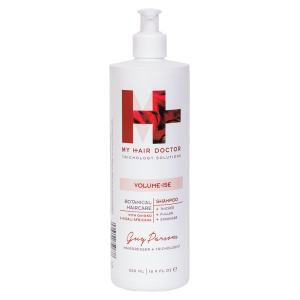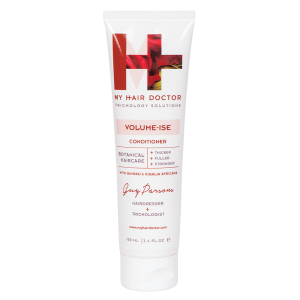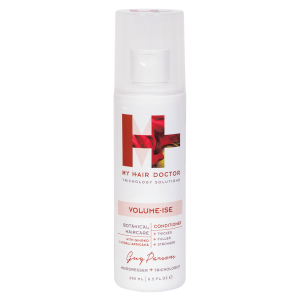Alopecia, Hair Loss Men, Hair Loss Women, Hair Science
ALOPECIA TOTALIS
What is it ?
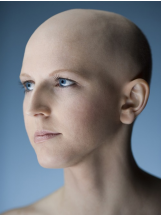 Alopecia Totalis is a genetic hair condition which involves the inflammation of the hair follicle. This can ultimately result in individuals losing all of the hair on their scalp. Alopecia Totalis can also affect a person’s nails and hair, making them brittle, thin and wavy.
Alopecia Totalis is a genetic hair condition which involves the inflammation of the hair follicle. This can ultimately result in individuals losing all of the hair on their scalp. Alopecia Totalis can also affect a person’s nails and hair, making them brittle, thin and wavy.
Alopecia Totalis is considered as an intermediary condition between:
i. Alopecia Areata in which a person loses patches of hair on the scalp. This usually occurs as smooth round patches that create bald spots of about 2cm (1 inch) across.
ii. Alopecia Universalis which, as you might have guessed, leads to the complete loss of body hair and scalp hair. Alopecia Totalis typically shows up in two forms. One form involves the relatively sudden and complete loss of all the hair on the head whereas the starts as patches of hair loss and eventually progresses to complete scalp hair loss.
How common is it?
Although it is generally believed that mostly elderly individuals are affected by Alopecia Totalis, this isn’t the case: people from all age groups can be affected by this condition. In fact, you may be surprised to learn that this hair condition affects mostly young adults (above 40 years of age) and children! This being said, Alopecia Totalis has been defined as a rare disease by Orphanet, a group of European partners. That’s because only 1 person per 2000 individuals are affected by the condition. Alopecia Totalis is more common in men than in women: according to statistics, about 1 in 250,000 females and 1 in 125,000 males are afflicted either by Alopecia Totalis or Alopecia Universalis.
What are the causes?
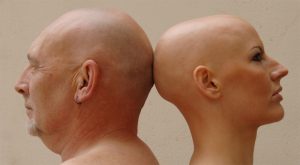 So far, scientists have not been able to pinpoint exactly what triggers Alopecia Totalis. Despite the fact that it is believed to be a genetically programmed disorder and to have an autoimmune origin, evidence shows that chronic stress present for a long period of time or an unexpected shock can also result in this condition. The fact that stress might be a trigger may come as a surprise but when you realize that stress can lower your immune function, it is possible that a distraught immune system might begin to attack your own cells.
So far, scientists have not been able to pinpoint exactly what triggers Alopecia Totalis. Despite the fact that it is believed to be a genetically programmed disorder and to have an autoimmune origin, evidence shows that chronic stress present for a long period of time or an unexpected shock can also result in this condition. The fact that stress might be a trigger may come as a surprise but when you realize that stress can lower your immune function, it is possible that a distraught immune system might begin to attack your own cells.
What does current research say?
One explanation that has been put forward for the instigation of this rare disease is that an atypical autoimmune response results in the release of chemical messengers known as ‘cytokines’ by the white blood cells. These famous cytokines then attack the healthy hair follicles of the person, preventing hair to grow as it should. This can eventually result in total loss of the hair on the head. Extensive research has been conducted in order to discover which gene is associated with Alopecia Totalis. Experts in this field are also trying to figure out why the white blood cells or the leukocyte antigen causing hair loss, behave in such a way. Several studies have clearly showed that the leukocyte DQ3 (DQB1*03) had been detected in 80% of Alopecia Totalis sufferers. The same studies also demonstrated that individuals affected by this disease as well Alopecia Universalis had an increase in their levels of white blood cells antigen (DRB1*0401) and HLA DQ7 (DQB1*0301).
What are the symptoms? And how does the condition progress?
The most obvious symptom of Alopecia Totalis is excessive hair loss on the scalp – other symptoms are rare and will often vary among individuals.
Alopecia Totalis usually progresses as follows:
i. The hair on the scalp starts to become thinner. ii. A gradual or sudden receding hair line appears. iii. A few bald patches develop. Within approximately six months from the beginning of hair loss, an individual suffering from Alopecia Totalis may become totally bald. The psychol
The psychological effects
This type of autoimmune condition does not cause physical pain and will not usually impair physical health. However, losing patches of hair can take a great toll on a person’s psychological health – this, in turn, can speed up hair loss.
Are there any tests or diagnosis available?
Since having Alopecia Totalis implies losing one’s hair and appears in the skin of the scalp, it is considered as a type of skin disorder. This is why dermatologists have a significant role to play in diagnosing this hair issue.
In order to make the diagnosis and decide which type of Alopecia Totalis the patient is suffering from, the dermatologist will take a close look at the patient’s scalp and examine the patterns of hair loss.
Generally, the way to detect any problem is through a scalp biopsy and several blood tests or diagnostic examinations which always prove to be useful. Blood samples are taken to investigate the reason as to why the individual’s immune system is attacking the hair follicles, thus resulting in Alopecia Totalis.
I suffer from Alopecia Totalis. Can I use natural means to recover?
Managing hair loss as a result of Alopecia Totalis can be done using different treatment options. However, once this disease has caused total loss of scalp hair, it is not an easy task to regrow the hair. In the majority of cases, the hair loss is unfortunately permanent. This being said there are natural treatments that you may want to try after getting the green lights from your doctor. If possible, work with a naturopathic doctor or naturopathic dietitian with experience in autoimmune disorders. These specialists will be able to design a protocol that is tailored to your needs. Below are some natural treatments that are usually used in the treatment of Alopecia Totalis. Remember that for any treatment to be effective, you would need to target the root cause of your condition – this will involve improving your diet and lifestyle.
• Essential oils
Mix one drop of different essential oils such as cedar wood, lavender and rosemary in a carrier oil like pure, unscented almond oil which is naturally rich in vitamin E. You may also choose to use essential oils of thyme, rosemary, lavender, and cedar wood, in a base of grape seed and jojoba oils. These oils can help stimulate your follicles and promote the growth of hair.
How to use:
i. Make sure to combine the essential oil in a carrier oil – do not use essential oils directly on your skin as this may lead to skin burns and allergic reactions.
ii. Proceed by gently massaging this concoction onto your scalp.
• Primula Obconica (Poison Primrose)
This popular winter and spring flowering plant can come in handy for those trying to help their hair grow naturally. The leaves of the plant have been found to release substances that irritate the skin. In doing so, an allergic reaction occurs which can help stimulate the growth of new hair. However, more research is needed to confirm this.
• Folkloric herbal treatment
So far, no specific herbs that have stood out as being truly effective in treating Alopecia Totalis. However, you may be interested to know that those who suffer from this condition often rely on the ingredients of Siwu Tang (Tang-kuei Four Combination, comprised of tang-kuei, peony, cnidium, and rehmannia). Ho-shou-wu, ligustrum, morus fruit and biota leaf, known to stop one’s hair from becoming grey, are also often used.
• Hypnosis
In recent times, studies have revealed that hypnosis can also be very helpful in reversing Alopecia Totalis in some individuals. However, you should not use this as your main treatment as it is helpful only when utilized in parallel with another remedy. Hypnosis may help you manage your level of stress and tension – this can, in turn, increase the success rate of the treatment.
What medical treatments are available for those suffering from this issue?
Before you go for any of the treatments listed below, please make sure to discuss your options with your physician. Below are several treatments which are available:
Immunotherapy
In immunotherapy, the normal chemical responses that occur in a person’s body are used to treat Alopecia Totalis. In this particular treatment, a specific substance that provokes allergic reactions, is carefully applied onto the patient’s scalp. The patient’s body then responds by producing anti-allergen chemicals. These chemicals stimulate the hair follicles to produce new hair.
• Side-effects of immunotherapy
Although this is the most common way to treat Alopecia Totalis, it has some side effects such as rashes, fever and drops in blood pressure. Less common side effects include thyroid problems and gastrointestinal problems like colitis
Steroid Therapy
If you decide to undergo steroid therapy, doctors will usually prescribe steroid pills or steroids in the form of creams. These creams or gels will then be applied onto your scalp to boost hair growth. In the beginning, this kind of therapy starts with mild dosages and then it gradually progresses with treatments which are more aggressive.
Some individuals may also opt for injections – these involve injecting steroids directly in the hair follicles of the patient. The hair will grow back after multiple injections.
• Side-effects of steroid therapy
After years of steroid therapy, patients reported having infections, allergic reactions, bleeding in their joints, rupture of their tendons and skin discoloration.
Drugs such as Regaine (Minoxidil)
Medications such as Regaine (more commonly known as ‘Minoxidil) are often used to treat mild cases of Alopecia Totalis. The drug works by slowing hair loss and enhancing hair re-growth. However, Minoxidil is not a wonder drug and will only be effective in cases where a person has not become completely bald.
• Side-effects of Minoxidil
The skin area treated with Minoxidil will often itch and feel sensitive. As if this wasn’t bad enough, hair may also start to grow on other parts of the body. Furthermore, many patients have reported an exacerbation of hair loss after using this substance. Minoxidil may also cause dandruff.
Photochemotherapy (PUVA)
Short for Psoralen combined with Ultraviolet A (UVA), PUVA therapy involves combining a medicine known as a psoralen with UVA light. The psoralen makes the skin more sensitive to UV light and is usually taken as a pill or by putting it directly on the skin to be treated. The skin is then exposed to UVA. Normal hair growth is restored by reducing the Langerhans cells (antigen-presenting immune cells) through the use of longwave ultraviolet light. PUVA treatments usually last for 4 to 6 months and are used when other
• Side-effects of PUVA
Short-term effects associated with PUVA include itching and redness of the skin as well as nausea due to the psoralen. Headaches and burns are also common. As you may have noticed, the treatments described above have quite a few drawbacks as well as potentially dangerous side effects. This is why you would greatly benefit from considering the natural options outlined earlier. Now, let’s move to some frequently asked questions.
What is the rate of recovery among Alopecia Totalis sufferers? Do you know people who have successfully been treated? How will I know if I have recovered?
Unfortunately, Alopecia Totalis is a totally unpredictable disease. You will never really know whether you have successfully treated your problem of hair loss or not. Some people who have suffered from Alopecia Totalis have sadly confessed that after losing all their scalp hair, they had a full re- growth and just when they thought that the tough times were behind them, they lost all their hair once again. Some even lost all their hair and witnessed a full re-growth several times! However, don’t let this bring you down. What happens to a specific person cannot be used to predict the fate of another one. Just because this occurred to some, does not mean that the same is awaiting you. We hope that you will be among the lucky ones who recover completely from Alopecia Totalis and never have to face hair loss again. According to some research studies, it appears that the prognosis for hair regrowth is positive in individuals who:
◦ Have had Alopecia Totalis less than two years.
◦ Are not affected by an atopy such as asthma; allergic rhinitis or hay fever; or atopic dermatitis also known as eczema.
Unfortunately, individuals who experience severe changes in their nails usually have a poorer prognosis in terms of full recovery from Alopecia Totalis.
Once I have treated my hair disorder, can it come back? What are the regrowth signs?
As explained in the previous question, nobody can predict what will happen to an individual suffering from Alopecia Totalis. Once a person experiences this condition and recovers from it, the probability for it to occur once again is, unfortunately, really high. Alopecia Totalis is a disease which lasts at least two years. Since it is not very responsive to therapy, chances that you see a spontaneous regrowth are quite low. And even if your hair grows back, the probability that you will face another hair loss episode still exists. What we can advise you to do is to start following a proper diet. This will definitely have a positive impact on your hair. If you are experiencing early signs of Alopecia Totalis, try to include loads of foods which are rich in vitamins into your daily diet. Further hair loss can be prevented if your diet comprises vitamins A, B and D as well as nutrients like iodine, iron and copper. Moreover, some experts have come forward saying that adopting a gluten-free diet can also help greatly in hair growth. That’s because gluten is known to increase intestinal permeability which can further hamper your immune system.
Is it hereditary disease?
When scientists dug deeper into the reasons that may predispose a person to develop Alopecia Totalis, they discovered that hereditary factors may have a role to play in triggering this disease. They found that hair loss issues and the presence of abnormal genes were closely linked. Since it is believed that Alopecia Totalis has a genetic influence on a person, there is a higher chance that when you get married, your sons and daughters could also end up facing the same issues. However, following a healthy, real food diet during pregnancy can improve your baby’s genes according to the science of epigenetics.
Can it cause hair loss?
Unfortunately, yes. Please check the section ‘Alopecia Totalis – What is it all about?’ above.
Can I recover completely from this episode? How long will it take?
According to an article that appeared in ‘The Telegraph’ on the 17th August 2014, scientists have been working on a pill that may reverse Alopecia baldness. These pills enabled three patients who had lost their hair due to the condition to regrow all the hair they had lost. After carefully identifying which immune cells caused the destruction of hair follicles in people suffering from Alopecia, some doctors decided to conduct a pilot trial. They thus put three patients on a drug called ‘ruxolitinib’ and after four to five months, all of them completely got back their scalp hair. However, the doctors said that more tests would have to be done before this drug can be safely used to treat baldness.
Can essential oils help?
Yes, they can definitely be of great help. Please check ‘I suffer from Alopecia Totalis. Can I use natural means to recover?’ above. However, remember to work with a naturopathic doctor or naturopathic dietitian.
Is it contagious?
Fortunately, you do not have to worry about contaminating others because you are suffering from Alopecia Totalis. Rest assured that this rare disease is not contagious as it is not the result of a bacterial or viral infection.
Can acupuncture be used to treat it?
After extensive research, experts concluded that Alopecia sufferers could benefit a lot from traditional Chinese medicine. If you decide to try this out, you will be given Chinese herbal medicine and topical creams. You will also be asked to make some modifications to the way you eat and you will be advised to undergo acupuncture sessions. In some cases, it was found that acupuncture therapy helped a great deal with hair regrowth.
Take home messages
Alopecia Totalis is a usually painless, non-contagious, autoimmune disease that typically progresses at different rates in different individuals. While some sufferers may vanquish the condition, others may not be as lucky: some individuals may even go through numerous episodes of hair regrowth followed by hair fall. Quite a few medical treatments are available but most of them come with unpleasant side effects which is why many sufferers opt for natural options. However, keep in mind that the efficacy of natural treatments will vary among individuals. This will greatly depend on factors such as length of complaint, resistance to the condition, the underlying constitution of the Alopecia sufferer as well as the patient’s compliance. If you or a loved one is suffering from Alopecia Totalis, know that you are not alone even if this condition is quite rare. To improve the success of your treatment, make sure to work with a healthcare professional with experience in autoimmune conditions and how to manage these naturally.
Volume-ise / Hairfood Active Botanicals


GINGKO
Working with Kigalia and Clary as an original blend of 3 plants acting synergistically and allowing scalp toning and limiting hair loss. They act on factors avoiding hair loss including 5-alpha-reductase inhibition, scalp microcirculation improvement and to decrease inflammation contributing to Seborrhoea (oiliness) which can block scalp follicles inhibiting growth.


KIGALIA AFRICANA
Working with Gingko and Clary as an original blend of 3 plants acting synergistically and allowing scalp toning and limiting hair loss . They act on factors avoiding hair loss including 5-alpha-reductase inhibition, scalp microcirculation improvement and to decrease inflammation contributing to Seborrhoea (oiliness) which can block scalp follicles inhibiting growth.


CLARY
Working with Kigalia and Gingko as an original blend of 3 plants acting synergistically and allowing scalp toning and limiting hair-loss. They act on factors avoiding hair loss including 5-alpha-reductase inhibition, scalp microcirculation improvement and to decrease inflammation contributing to Seborrhoea (oiliness) which can block scalp follicles inhibiting growth.




